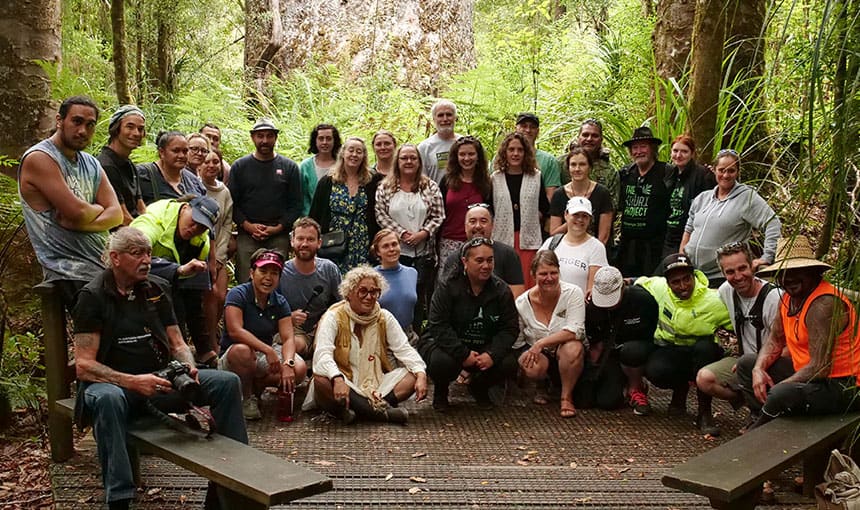The four-day event was organised by The Kauri Project in collaboration with Te Roroa, Te Tira Whakamātaki, Reconnecting Northland, and Victoria University of Wellington, while being supported by the New Zealand National Commission for UNESCO and the Kauri Dieback Programme.
Te Roroa’s Taoho Patuawa says that, from the perspective of kaimahi (staff) within the Iwi organisation of Te Roroa, the wānanga was an excellent opportunity for individuals and organisations, Māori and non-Māori, to come together and share stories of working within kauri forest ecosystems and their experiences working across different aspects from central Government, local agencies and communities.
“It was also fantastic to meet new faces and reconnect with others who have long been working to help save our kauri forests,” Taoho says.
Around 70 people attended the wānanga and presenters included Victoria University’s microbiologist Dr Monica Gerth and Associate Professor of biochemistry Wayne Patrick.
Matua Hemi Waiwai and Matua Tohe Ashby spoke on the importance of mātauranga Māori for healing community, environment and wairua (soul), a kōrero (conversation) that continued across the weekend.
BioHeritage Challenge members Melanie Mark-Shadbolt, Nick Waipara, Amanda Black and Jack Craw also attended the wānanga.
Jack says the wānanga was a real success and they discussed several models of collaborative engagement.
Waiata and storytelling were woven throughout the programme as a reminder of the importance they have in expressing both current and historical relationships and concerns.
Art was championed on the final day, with a viewing of the Kauri Ki Uta, Kauri Ki Tai exhibition at the No 1 Parnell Gallery in Rawene.
The Kauri Project’s Chris McBride and Ariane Craig Smith say solutions to an issue such as kauri dieback disease require a complex, collaborative response.
“Key themes to emerge [from the wānanga] were connectivity and a rising sense of hope that we can find strategies to manage this issue, if we work in collaboration.”
Article written in collaboration with The Kauri Project.
